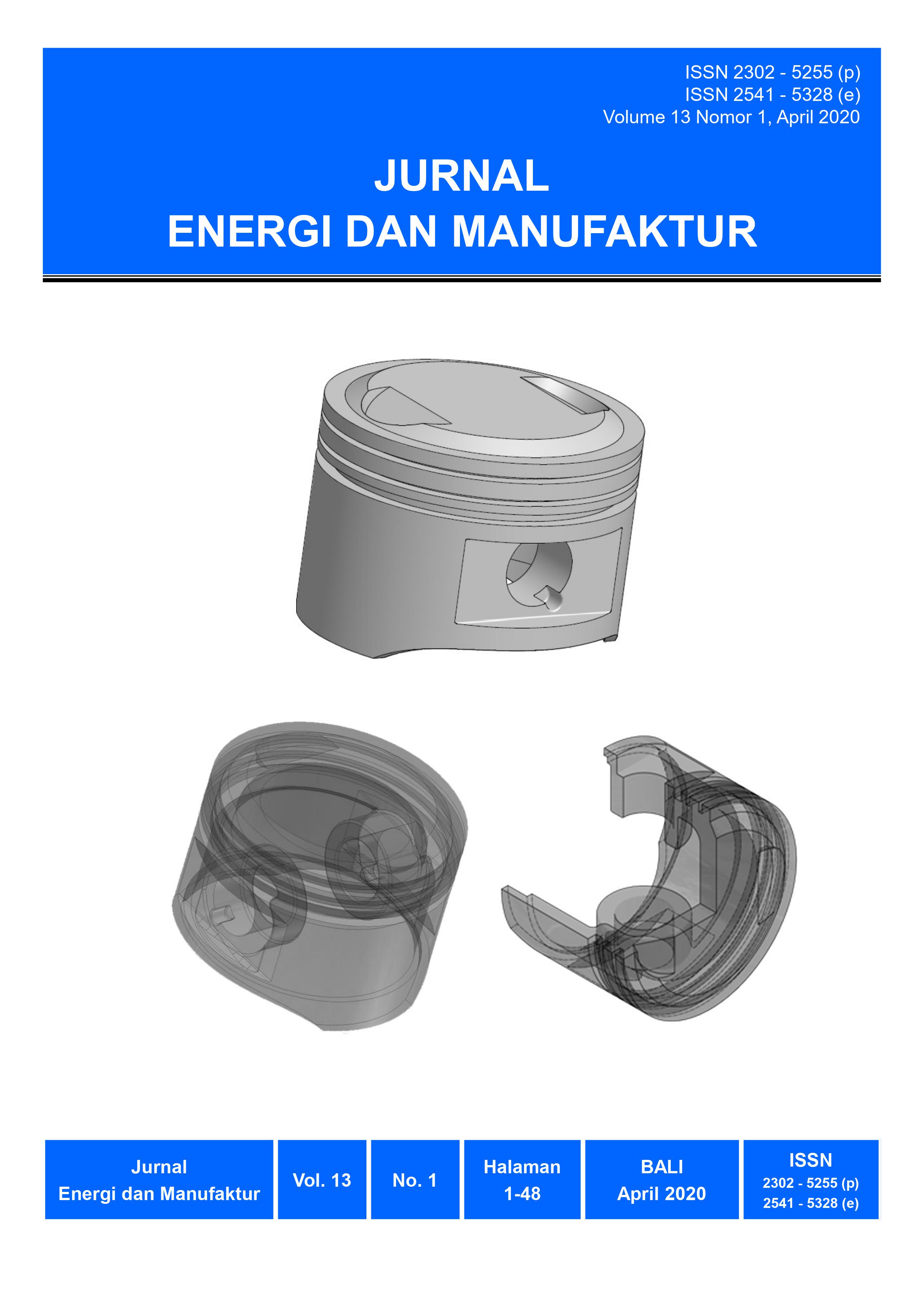Kajian Pemasangan Pipa Air Bersih Melayang dalam Air Laut untuk Mendukung Perkembangan Pariwisata di Nusa Ceningan dan Lembongan
Abstract
ir bersih merupakan kebutuhan dasar untuk kehidupan manusia. Demikian pula aktivitas kehidupan di pulau Nusa Ceningan dan Lembongan membutuhkan air bersih. Mengingat kedua pulau tersebut merupakan destinasi wisata pavorit dan berkembang pesat, maka disamping untuk kehidupan masyarakat sehari-harinya (7153 jiwa), ketersediaan air bersih sangat dibutuhkan untuk hotel dan aktivitas pendukung pariwisata. Namun, di kedua pulau tersebut tidak tersedia sumber air bersih. Oleh sebab itu salah satu alternative solusinya adalah menyalurkan air bersih dari pulau terdekatnya yaitu Nusa Penida. Di Nusa Penida terdapat dua mata air yang cukup besar yaitu mata air Guyangan (78 lt/dt) dan Penida (173 lt/dt). Proyeksi kebutuhan air dengan debit harian maksimum 30 lt/dt. Pada kajian ini, kebutuhan air bersih tersebut akan disuplai dari mata air Penida. Pada umumnya pemasangan pipa menyebrang laut dipasang pada dasar laut (seabed) atau mengapung di permukaan air laut. Namun lautan antara pulau Nusa Penida dan Ceningan merupakan jalur pelayaran kapal, dan lautan tersebut merupakan palung curam dengan kedalaman 200 meter maka kedua metode pemasangan pipa tersebut tidak dapat dilakukan. Oleh sebab itu satu-satunya cara adalah memasang pipa melayang pada kedalaman 20 meter di bawah permukaan air laut. Pipa akan menerima berbagai macam gaya-gaya luar akibat tekanan hidrostatis air laut, hydrodinamik arus dan gelombang. Sesuai hasil kajian, pipa menyeberang lautan dengan bentang 1500 meter terdiri dari tiga pipa HDPE berdiameter 140 mm yang dipasang parallel. Setiap pipa menerima gaya hidrodinamik pada arah vertikal 64.050 Newton arah keatas dan horizontal 71.550 N/m. Oleh sebab itu untuk mengamankan pipa dari beban gaya-gaya tersebut maka pipa diikat pada jembatan sling baja stainless berdiameter 110 mm. Disamping itu pada setiap jarak 6 meter pada sling jembatan pipa tersebut dipasangi beton ballast load 350 kg dengan sling penggantung diameter 6 mm. Metode ini pelaksanaannya rumit dan membutuhkan berbagai peralatan pendukung sehingga dibutuhkan biaya kontruksi yang mahal pula. Namun, hal ini perlu dilakukan untuk menyediakan air bersih di Nusa Ceningan dan Lembongan guna meningkatkan perkembangan pariwisata di daerah tersebut.
Clean water is a basic need for human life. Likewise the activities of life on the island of Nusa Ceningan and Lembongan need clean water. Considering that the both islands are favorite tourist destinations and are growing rapidly, in addition to the daily life of the community (7153 people), the availability of clean water is needed for hotels and tourism supporting activities. However, on both islands there are no sources of clean water. Therefore, one alternative solution is to distribute clean water from the nearest island, Nusa Penida. On the Nusa Penida there are two fairly large springs, namely the Guyangan spring (78 lt/sec) and Penida (173 lt/sec). The projection of water demand until 2043 at daily maximum capacity is 30 lt/sec. In this study, the need for clean water will be supplied from the Penida spring. In general, the installation of crossing pipeline is installed on the seabed or floating on the sea water surface. However, the sea between the Nusa Penida and Ceningan islands is a ship's shipping lane, and the sea is a steep trough with a depth of 200 meters, so the both methods of mounting the pipe cannot be performed. Therefore the only way is drifting the pipeline at a depth of 20 meters below sea level. The pipe will receive various external forces due to the hydrostatic pressure of seawater, hydrodynamic of currents and waves. According to the results of the study, the pipeline crossing the ocean with a span of 1500 meters consists of three HDPE pipes with a diameter of 140 mm which are installed parallel. Each pipe receives hydrodynamic forces that are vertical force of 64,050 Newton in upper direction and horizontal force of 71,550 Newton. Therefore to secure the pipeline from the load of these forces, the pipe is tied to a stainless steel sling bridge with a diameter of 110 mm. Besides that, at every distance of 6 meters the pipe bridge sling is fitted with a ballast concrete load of 350 kg with a hanging sling of 6 mm. This method is complicated and requires a variety of supporting equipment, so its construction cost is expensive. However, this should be done to provide clean water in the Nusa Ceningan and Lembongan in order to increase the development of tourism in the area.
Downloads

This work is licensed under a Creative Commons Attribution-NonCommercial-ShareAlike 4.0 International License.









